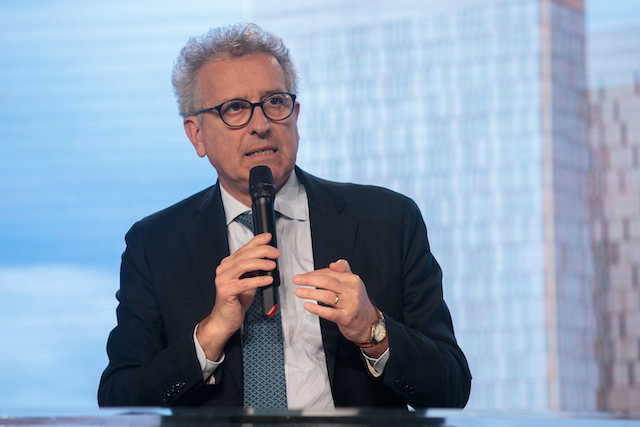The strategy was born out of a sustainable finance roadmap presented in 2018. Developed together with the UN environment programme, it presented a series of recommendations on how Luxembourg could contribute to the Agenda 2030 and Paris Agreement objectives.
As a result, the government, Luxembourg for Finance and the High Council for Sustainable Development together founded the Luxembourg Sustainable Finance Initiative, a not-for-profit that designed the strategy and is charged with implementing it.
“It’s about our planet,” said finance minister Pierre Gramegna at the launch of the strategy. “We have to save that planet. Finance will help us save that planet.”
The strategy is built on three pillars:
- Awareness and promotion
- Unlocking potential
- Measuring progress
The strategy aims to “crowd-in” the private sector, Gramegna said. For example, the Luxembourg Sustainable Finance Initiative will help financial sector players carry out climate scenario analyses and establish a monitoring framework to measure progress over time.
Based on a country-wide climate change assessment, the initiative will identify and target areas for improvement, and aim to enhance data collection and measurement.
But already ahead of the launch, Greenpeace Luxembourg issued a statement criticising that the strategy “does not contain any clear targets, measures or timelines to bring the entire financial sector in line with climate-protection goals.”
In January the environmental organisation had published a scathing report on the financial centre’s climate impact. “We have only about 10 years left to prevent catastrophic climate change,” campaigner Martina Holbach said in a statement.
“At the moment we are not on track [to limit warming to 1.5°C], and we have to be more ambitious,” environment minister Carole Dieschbourg said, acknowledging Greenpeace’s criticism.
Adopted in 2015, the Paris Agreement includes a five-year review cycle to raise ambition over time, the minister explained. In 2020, for example, Luxembourg passed its national climate law, enshrining the goal to cut greenhouse gas emissions by 55% by 2030 and become climate neutral by 2050.
One of the strategy’s action points is for public investments to lead by example, with a screening of sovereign and pension funds for ESG soundness and their carbon footprints foreseen.
Pressure has been mounting on the government to review the investment strategies of state funds, which still invest in carbon majors and other polluting industries. Parliament in December 2020 voted a motion calling on the government to make the pension fund (FDC) and the so-called intergenerational fund (FSIL) more socially responsible and environmentally friendly.
The strategy was presented one day after the government launched a circular economy framework that aims to eliminate waste and incentivise a transition towards more sustainable ways of doing business.
